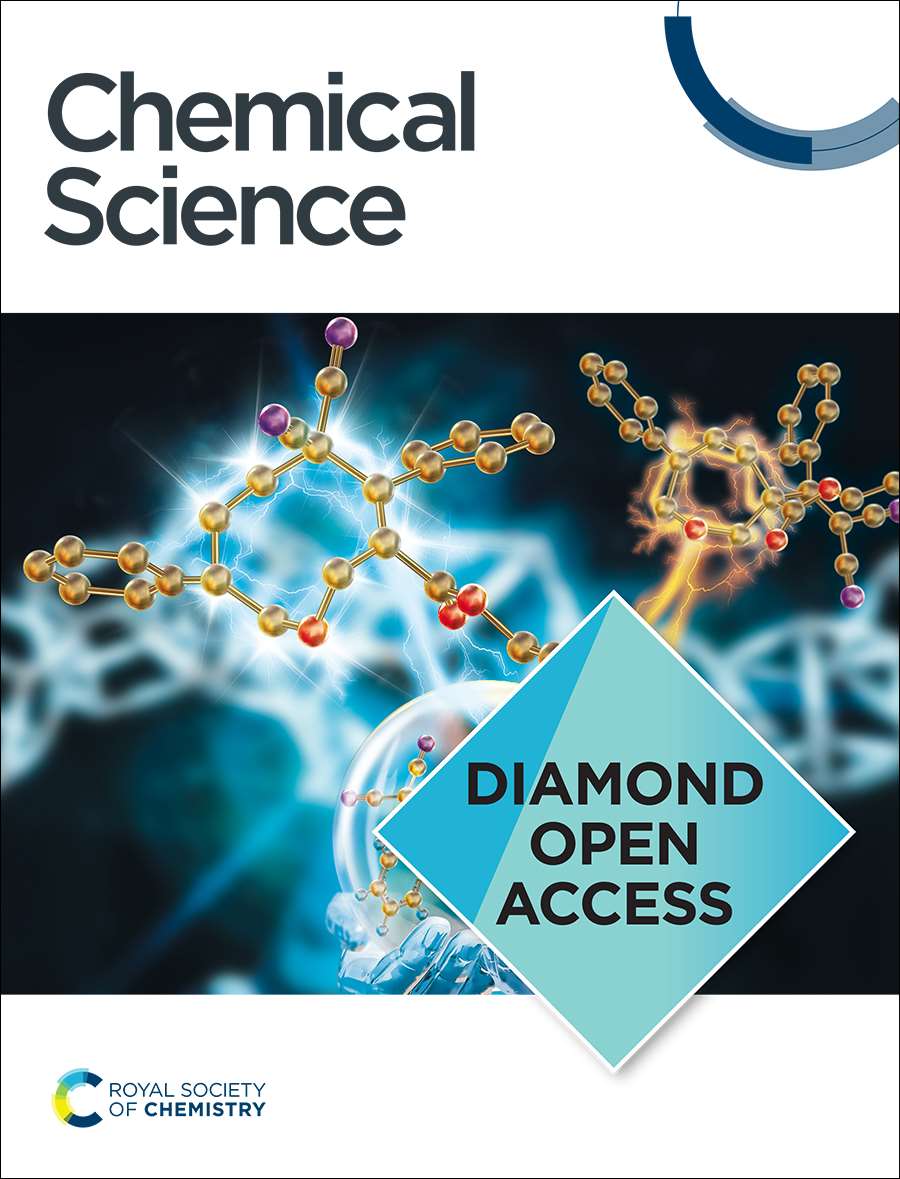Water-Accelerated Photooxidation and Degradation of Lignin Linkages Mediated by Plasmonic Catalysts
IF 7.6
1区 化学
Q1 CHEMISTRY, MULTIDISCIPLINARY
引用次数: 0
Abstract
The selective oxidation and degradation of lignin are crucial for realizing its potential as a biofuel or petroleum substitute. Despite the importance of C–C bond cleavage for lignin valorization, this process is significantly challenging. Herein, we present plasmonic gold nanoparticles (Au NPs) as environmentally friendly and reusable photocatalysts for the chemoselective oxidation of the benzylic hydroxyl groups of lignin and subsequent lignin degradation. The oxidation process is driven by the generation of superoxide ions (O2•−), leading to proton release and initiating lignin photooxidation through a mechanism termed plasmon-driven hydrogen atom abstraction and degradation (p-HAADe). Our results demonstrate the significant suppression of lignin oxidation and degradation in acetonitrile-rich environments, while aqueous conditions notably enhance these processes. Furthermore, two distinct time-dependent regimes are identified, namely, the "oxidation dominant" regime, where lignin oxidation is predominant, and the "degradation dominant" regime, favoring Cα–Cβ bond cleavage. These findings provide crucial insights into optimizing lignin conversion in biofuel applications, highlighting the potential of Au NPs for use in sustainable chemical processes.等离子催化剂介导的水加速光氧化和木质素连接降解作用
木质素的选择性氧化和降解对于实现其作为生物燃料或石油替代品的潜力至关重要。尽管C-C键劈裂对木质素增值具有重要意义,但这一过程具有重大挑战性。在此,我们提出等离子体金纳米粒子(Au NPs)作为环境友好和可重复使用的光催化剂,用于木质素的苯基羟基的化学选择性氧化和随后的木质素降解。氧化过程由超氧离子(O2•−)的产生驱动,导致质子释放,并通过等离子体驱动的氢原子提取和降解(p-HAADe)机制启动木质素光氧化。我们的研究结果表明,在富含乙腈的环境中,木质素的氧化和降解得到了显著的抑制,而在水环境中,木质素的氧化和降解得到了显著的增强。此外,还确定了两种不同的时间依赖机制,即“氧化优势”机制,其中木质素氧化占主导地位,以及“降解优势”机制,有利于c - α - c β键的裂解。这些发现为优化生物燃料应用中的木质素转化提供了重要见解,突出了Au NPs在可持续化学过程中使用的潜力。
本文章由计算机程序翻译,如有差异,请以英文原文为准。
求助全文
约1分钟内获得全文
求助全文
来源期刊

Chemical Science
CHEMISTRY, MULTIDISCIPLINARY-
CiteScore
14.40
自引率
4.80%
发文量
1352
审稿时长
2.1 months
期刊介绍:
Chemical Science is a journal that encompasses various disciplines within the chemical sciences. Its scope includes publishing ground-breaking research with significant implications for its respective field, as well as appealing to a wider audience in related areas. To be considered for publication, articles must showcase innovative and original advances in their field of study and be presented in a manner that is understandable to scientists from diverse backgrounds. However, the journal generally does not publish highly specialized research.
 求助内容:
求助内容: 应助结果提醒方式:
应助结果提醒方式:


